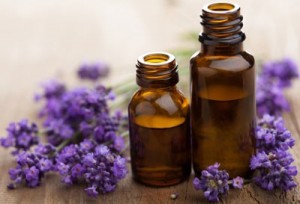Aromatherapy is the practice of using volatile plant oils, including essential oils, for psychological and physical well-being.
 Essential oils, the pure essence of a plant, have been found to provide both psychological and physical benefits when used correctly and safely. The Essential Oil Profiles area details over 90 essential oils. Absolutes, CO2s and Hydrosols are also commonly utilized in aromatherapy. Although essential oils, CO2 extracts and absolutes are distilled in different manners, the term essential oil is sometimes used in writing as a blanket term to include CO2s and absolutes.
Essential oils, the pure essence of a plant, have been found to provide both psychological and physical benefits when used correctly and safely. The Essential Oil Profiles area details over 90 essential oils. Absolutes, CO2s and Hydrosols are also commonly utilized in aromatherapy. Although essential oils, CO2 extracts and absolutes are distilled in different manners, the term essential oil is sometimes used in writing as a blanket term to include CO2s and absolutes.
Aromatherapy is the use of pure essential and absolute oils. Essential oils are complex, highly fragrant and volatile substances, with varying degrees of complexity, fragrance, and volatility. They are the most potent and concentrated extracts of various parts of flowers, fruits, leaves, spices, roots, and woods. The plant’s essence molecules are approximately 75-100 times more concentrated as an essential oil than in the dried plant.
While in the plant, the essence molecules play a key role in the biochemistry of the plant — they are located between the cells of the plant and these molecules act as regulators and messengers. By giving the plant its aromatic essence, they are also thought to give the plant its ”life force”. They also protect the plant from parasites and disease, and play an important role in fertilization and assist the plant’s adaptation to its environment.
To obtain essential oils the aromatic essence molecules of the plant must be captured by using a technical distillation or extraction method. In earlier times, the art of distillation was held in the hands of the few and was considered to be an alchemical transformation of spirit, a bridge between the two realms.
The term “essential oil” is used somewhat loosely as it is often applied to all aromatic products such as essence oils, absolutes, resinoids, and concretes. In Aromatherapy, the most common method of extraction is steam distillation. However, cold expression is used for citrus oils, and a method of solvent extraction for absolutes, concretes and resinoids. The newest technological process of extraction is the hypercritical carbon dioxide method: in part due to high cost, it is not as commonly available.
In Aromatherapy it is held that once extracted, the chemical constituents of a particular essential oil will determine its primary action. Generally, essential oils consist of chemical compounds which have hydrogen, carbon and oxygen in their building blocks.